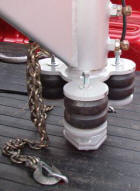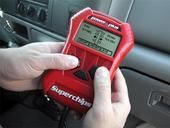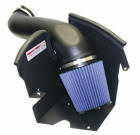|
Diesel vs. Gas If you live anywhere near an agricultural center, or a major cross-country highway, you’ve seen the separate sections of filling stations that cater to diesel-fueled vehicles, as well as the lines of hissing semi-trucks with the odd German-import car thrown in. But diesel isn’t just for semi-trucks and busses, and as for being cheaper – well – that depends. Advantages of Diesel Engines Zippy German sports cars aside, the main use of diesel engines is for trucks that haul or tow cargo. Why? Well there are several reasons:
So, with all these reasons why diesel is better, should we all be rushing out to buy diesel-powered trucks? Not necessarily. One of the greatest disadvantages of diesel is that vehicles with diesel engines cost more up front. The 2001 model of the New Beetle we mentioned before came with an MSRP of $15,900 with a 150 hp 2.5 liter gas engine, while the 1.9 liter TDI diesel version offered only 90 horsepower and cost $2,000 more. In trucks, the price difference is even larger – the same model year (2001) Chevrolet Silverado truck was $4800 more expensive when equipped with a Duramax diesel engine. What do those numbers mean? Put simply, it means that it’s the longevity of a diesel-powered truck that makes it worth while. Despite the fact that the diesel Beetle has a substantially higher estimated mpg, the reality is that over the six to ten years the average person uses a normal car, they’re unlikely to use enough fuel for that difference in mileage to offset the initial price of the car. To break even, the diesel car would have to “spot” the other car 50,000 miles. If, on the other hand, you plan to keep a diesel truck longer than the average, you may get to the point where you’ll save money. A properly cared-for diesel engine is only about half way through its life-span at 175,000 miles, after all. Unfortunately fuel economy isn’t the only factor you have to consider in the final cost analysis of diesel vs. gas. For example, while diesel engines generally require less maintenance, when you DO have to send one to the shop, you should be prepared to spend about $20/hour more for the work than you would for a vehicle with a gas engine. Additionally, even the fuel economy improvement isn’t guaranteed. Remember, diesels are built for strength, not speed. The final verdict? Definitely consider diesel if you’re doing a lot of heavy towing or hauling, because you’ll need the power, and if you’re the type to keep a truck forever, but if you’re a truck enthusiast who does most driving on regular roads, gasoline may be your best bet.
|







